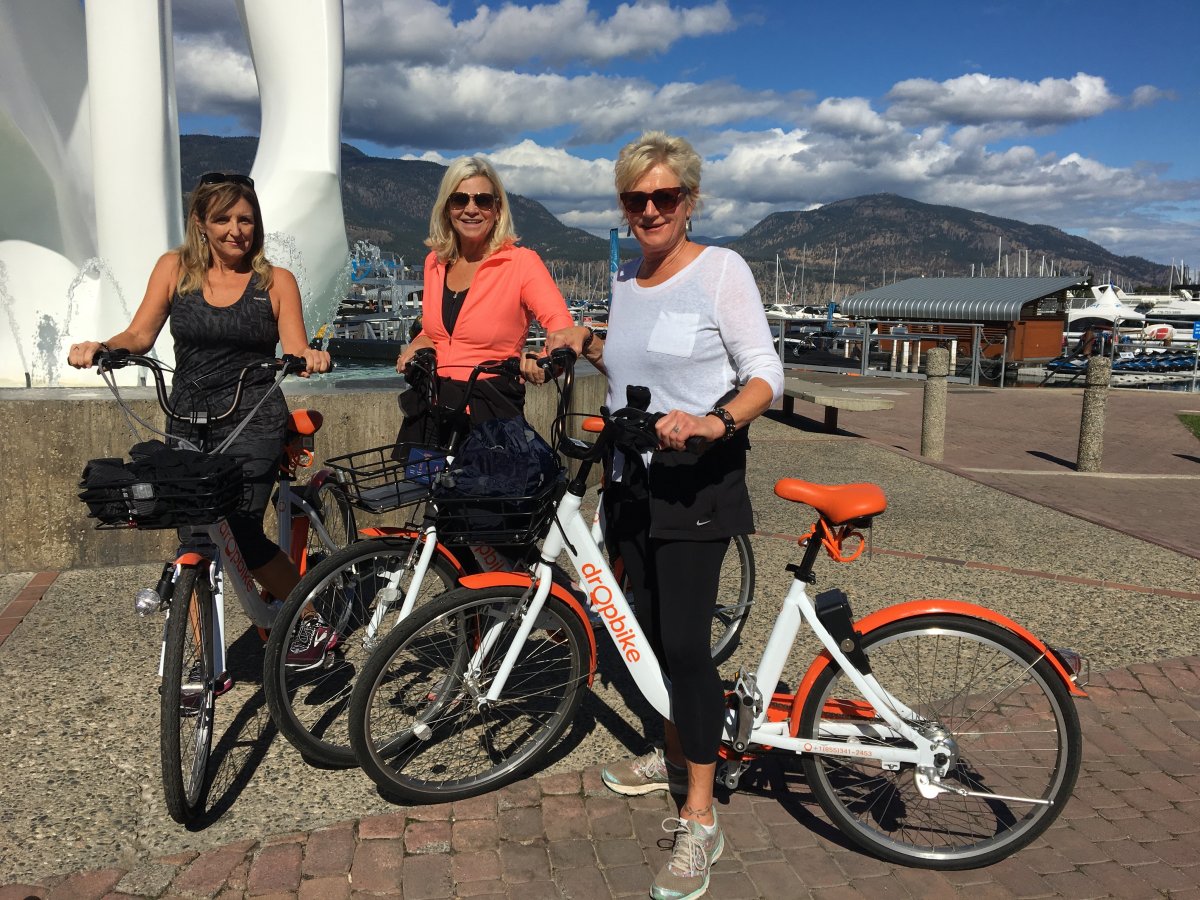The City of Kelowna is still in the midst of its 18-month bike-sharing pilot project that began last year, but city staff are already optimistic about a growing future for bike-sharing in Kelowna.

With stats for the first summer of bike-sharing showing that more than 300 bikes were used over 33,000 times, city staff are recommending that city council look at expanding bike-sharing in the city.
“Roughly a third of the total trips were made by 600 frequent users, which indicates that there is a dedicated user base emerging for this service,” wrote the city’s active transportation co-ordinator, Matt Worona, in a report to Kelowna city council.
The city’s pilot project is a partnership with Toronto-based company Dropbike, which placed hundreds of the bikes on Kelowna streets starting last June. The bikes could be accessed and rented using a smartphone app.
The bike-sharing pilot may be helping to cut down on the use of cars as, according to a Dropbike survey, more than a quarter of the bike trips in Kelowna “would otherwise have been made by driving.”
The results have city staff suggesting that Kelowna work towards expanding its bike-sharing program.
- What is a halal mortgage? How interest-free home financing works in Canada
- Capital gains changes are ‘really fair,’ Freeland says, as doctors cry foul
- Ontario doctors offer solutions to help address shortage of family physicians
- Canada will take bigger economic hit than U.S. if Trump wins election: report
The suggestion is that the city could look at creating a system that would allow several bike-sharing companies to work in the city simultaneously, covering a larger area of Kelowna and potentially offering other options to transitional pedal bikes, such as electric bikes or electric scooters.
However, the staff report reveals that the pilot project has also raised some challenges that need to be addressed.
The city report said the Dropbike survey “revealed that Kelowna bike-share users were younger and wealthier than the average Kelowna resident,” raising questions about why those on the lower end of the economic spectrum aren’t using the bikes as often.
The report suggested that city staff look into “how accessible the service is for the economically disadvantaged” and make changes if needed.
The report also suggested that the city look at fining bike-share businesses when they don’t remove broken bikes or return the bikes to a service area in a timely fashion.






Comments